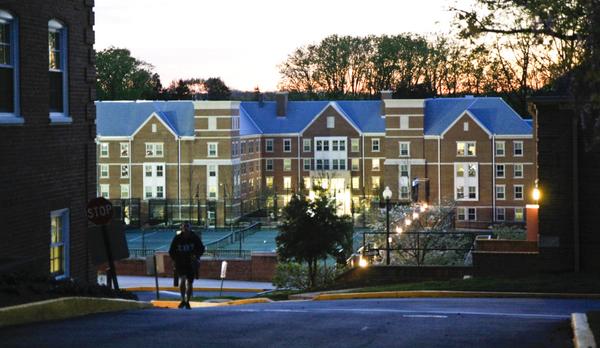
The Mount Vernon Campus suffers from the perception that students who live there are isolated from the complete GW experience.
Not all of this criticism is fair. But the campus has long lacked resources vital to a positive college experience. Up until now, mental health services have not found a permanent home on the campus even though nearly 700 students each year have.
In light of three student deaths, including two suicides, on the suburban campus in the last three months, it is reassuring and commendable that the University has swiftly decided to place a staff of mental health professionals there.
Before last week, GW’s failure to send resources to the campus sent the message that students living on the Vern don’t deserve the same level of access to mental health care as Foggy Bottom students.
More counseling is not a cure-all, but it’s also not just a crutch to fill our collective instinct to want to change something about our community when tragedy strikes.
Mental health services are a basic need: Students who feel they unable to get out of their beds each morning because they suffer from depression won’t do well in school. They won’t build social lives.
State-of-the-art classrooms, refurbished athletic fields and all-you-can-eat dining halls mean little to someone who is experiencing too much emotional pain to enjoy them.
Mental health services aren’t just another perk, like 4-RIDE or Greek townhouses – they help students keep their heads above water as they take part in all that the college experience entails.
EMeRG serves the Vern through the night on weekends to give students easy access to a hospital in case of an emergency.
But when it comes to mental health, the stakes are just as high. This historical lack of regard for equal psychological services – even as resources for physical health are provided – is a clear instance of mental health stigma in action. Mental illnesses aren’t always visible on the surface, but that doesn’t mean they aren’t real.
State-of-the-art classrooms, refurbished athletic fields and all-you-can-eat dining halls mean little to someone who is experiencing too much emotional pain to enjoy them.
After intense student lobbying, GW will bring the University Counseling Center, with its 17 clinical staff members and trainees, and the Student Health Service office to the Marvin Center. However, the Vern was overlooked during conversations about the importance of mental health resources – by campus leaders and this editorial board.
The lack of equality is even more disturbing when one realizes how much the University needs the Vern, which houses students and allows GW to grow its student body and tuition base.
The campus serves as a financial support system at an institution constricted by a city-imposed enrollment cap on Foggy Bottom. The University needs the Vern – but students who live there need the full attention of the University.

Putting mental health specialists in residence halls
Administrators are planning on spending the summer to outline space and staffing logistics for counseling on the Mount Vernon Campus. In those talks, they should consider another way to bring more mental health services into residence halls.
One way GW can complement its growing counseling services is by adding graduate psychology students to freshman residence halls.
Fortunately, a change like this wouldn’t require the University to build a new program from scratch. In fact, the infrastructure already exists: About 20 graduate students – many of whom are in the Graduate School of Education and Human Development – live in a number of freshman residence halls, serving as residence directors, overseeing house staff and responding to escalated student concerns.
The program, which has existed for two years, should be expanded or reshaped to focus hiring efforts on graduate psychology and clinical psychology students – over 200 of whom attend GW. Those students already work across four training clinics across campus where undergraduates sometimes go if their six free sessions at UCC are up, or if wait times there are too long.
They would serve as familiar faces with the skills to combat depression and anxiety, issues many undergraduates living in residence halls face.
We’ve seen programs like this instituted at other colleges. Take, for example, Lindsey Wilson College, a small liberal arts college in Kentucky. Graduate psychology students help freshmen there work through issues they might be facing while giving aspiring mental health professionals field experience that will benefit their careers.
Mental health issues that are more serious can be referred to the counseling center or outside counselors. But these graduate students in residence halls would be far more accessible, giving students tentative about seeking care a quick and low-pressure venue to do so safely. Given the students’ background in psychology, they can act as more than just first responders before the UCC.
By making these substantive, though not extremely costly, changes, GW can prove that strong mental health is a top priority.





